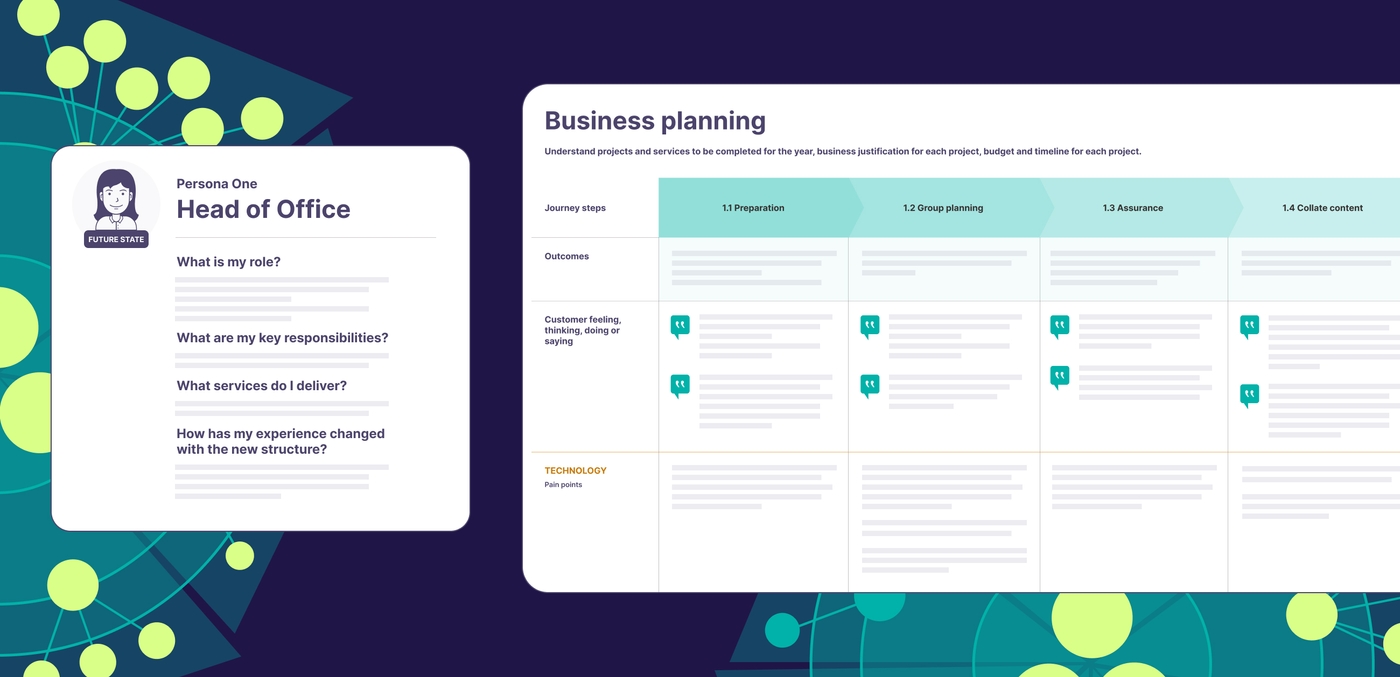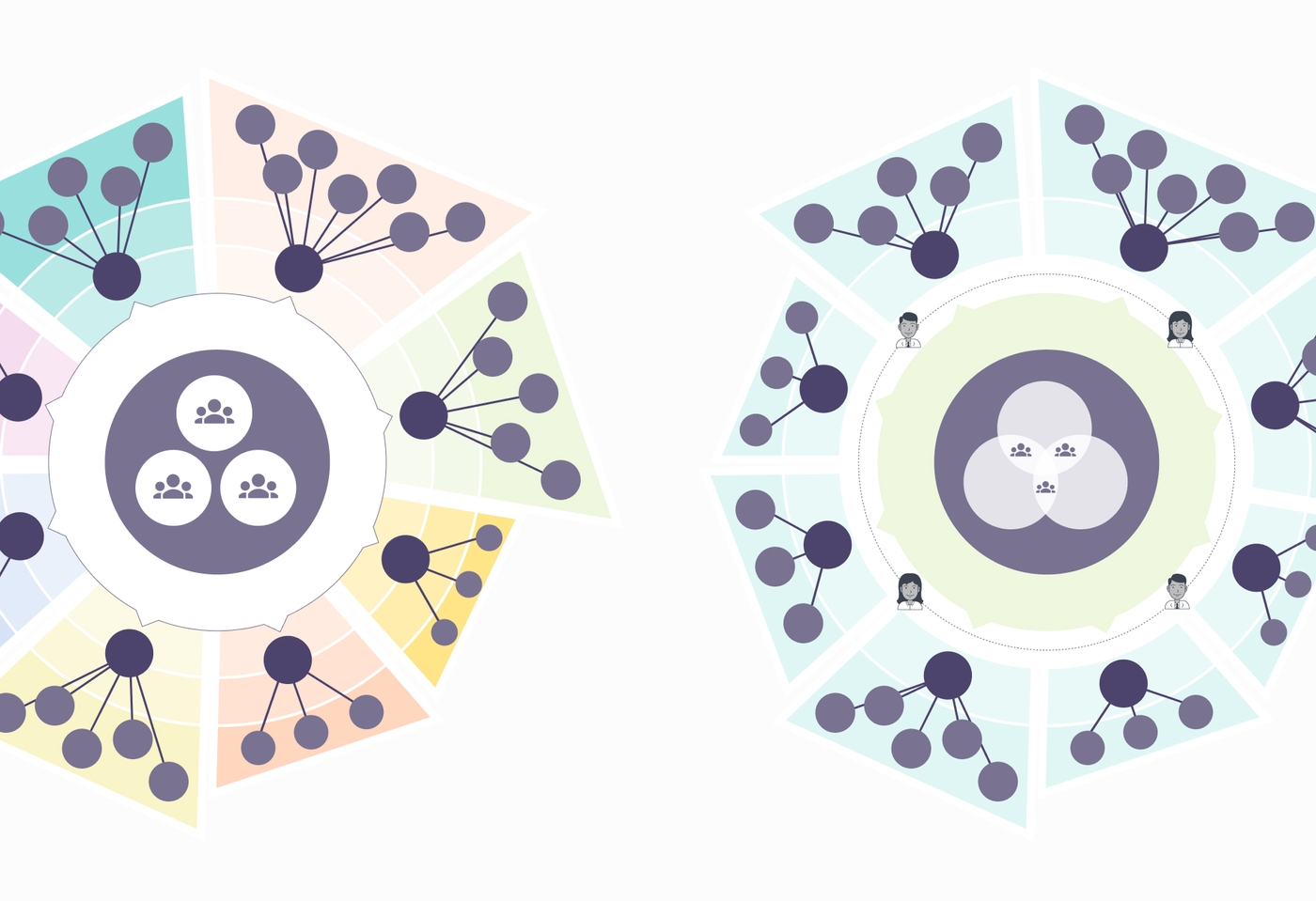
The Opportunity
The Department of Environment, Land, Water and Planning (DELWP) is undergoing an internal transformation to streamline a number of its corporate functions. The transformation program aims to significantly reduce staff effort, duplication and volume of manual tasks, while delivering new technology platforms and service improvements.
DELWP engaged Portable to lead an internal design validation process, towards the end goal of introducing a future-state operating model that achieves financial savings targets and improves internal service delivery.
The Challenge
The transformation program team within DELWP had hypothesised ways to restructure services and functions across the departments within the business (known internally as groups), in order to improve service delivery while achieving the required savings targets. However, these suggestions were based on a series of assumptions and didn’t feel grounded in the day-to-day reality of delivering corporate business planning and reporting. The options provided lacked credible insight into how staff perceived the current state of play, and the potential risks and consequences of various transformation options.
Our challenge was to engage directly with DELWP staff to better understand the business planning and reporting functions within each group, the differences in how they currently deliver these services, and how they may be impacted by the change, so that decisions to make functional and structural changes that could be grounded in evidence rather than assumptions.
Our Approach
Working with internal deadlines set by DELWP, it was necessary that we deliver the outcomes in a short period of time. Using co-design and other design methodologies helped ensure that our approach was agile and adaptive. We collaborated closely with the DELWP project team to ensure we could deliver the evidence required to progress the transformation program.
We outlined the following objectives for this project:
- Build on previous co-design activities undertaken by DELWP to design the future state operating model.
- Engage with staff at different levels across all 8 groups within DELWP to socialise the proposed operating model changes, validate assumptions and generate insights to decide on the future state operating model.
- Understand the wider response to these changes and gather feedback on the potential risks and change impacts of the proposed operating model.
- Better understand the current state of business planning and reporting roles within each group, how they currently deliver these services, and how they may be impacted by the change.
- Iterate the design of the operating model based on input and feedback from staff and other influential stakeholders.
- Articulate the detailed change impact of the proposed model, to present an informed choice for the key decision makers.
Stakeholder engagement planning
To understand the different stakeholders involved in this change, we ran a stakeholder mapping workshop with DELWP’s project team. This allowed us to design an engagement plan for the project.
We defined the key learning goals for each engagement activity, and clearly outlined how these activities would contribute to the final project deliverables. This plan supported us in providing DELWP with the information they needed to recruit the stakeholders that we’d outlined together.
Stakeholder engagement activities
We started by developing a set of storytelling assets that included personas, journey maps and proposed operating models, to help us articulate and better understand the current state and communicate the proposed changes to the operating model.
Our agile approach, and close communication and planning with DELWP’s project team, allowed us to facilitate 3 different phases of stakeholder engagement activities over a fortnight.
First was a series of interactive design validation workshops with staff representing all 8 groups across DELWP, to understand how the current state diverged between groups, potential risks and change impacts, and to get feedback on the proposed future state models.
We ran a showcase with the Heads of Office from each group, to present the storytelling assets, gather high level feedback and allow them to absorb the detail in preparation for our final engagement activity.
We then ran a series of interviews with each of the Heads of Office, to understand the current state of business planning and reporting activities, resourcing constraints, barriers or blockers, concerns and opportunities surrounding the proposed operating models. We also identified the staff who may be impacted by the change and specified the scope of change activities within these teams.
Synthesising the findings into insights
Working in close collaboration with DELWP’s project team, we synthesised the findings from the stakeholder engagement activities into a series of insights that informed the recommendations for the future state operating model. This allowed DELWP to put forward a prioritised set of recommendations to their executive team, who would further refine and validate the preferred operating model.
These recommendations were supported by refined current state journey maps, a set of ideal future state personas that brought to life key roles in the future operating model, and a revised design of the preferred operating model that would help communicate the proposed change across the business.

Project Outcomes
Summary
Our human-centred design approach, using direct engagements with the different groups, allowed us to provide DELWP’s project team with evidence-based and validated assets.
These assets will help the Transformation Project team to more confidently make decisions about the future operating model for business planning and reporting.
Ryan Thompson, Senior Design Strategist
“It has been an incredible experience collaborating so closely with the DELWP team and seeing their appreciation for the importance of adopting a human-centred approach to business design.”
Project team
- Lauren Manning, Senior Producer
- Belinda Donald, Senior Design Strategist
- Ryan Thompson, Senior Design Strategist
- Peter Roper, Senior Content Strategist
- Sophie Turner, Lead Design Strategist
- Ash Colcott, Experience Designer
- Simon Goodrich, Client Partner
- Nick McLoughlan, Lead Producer